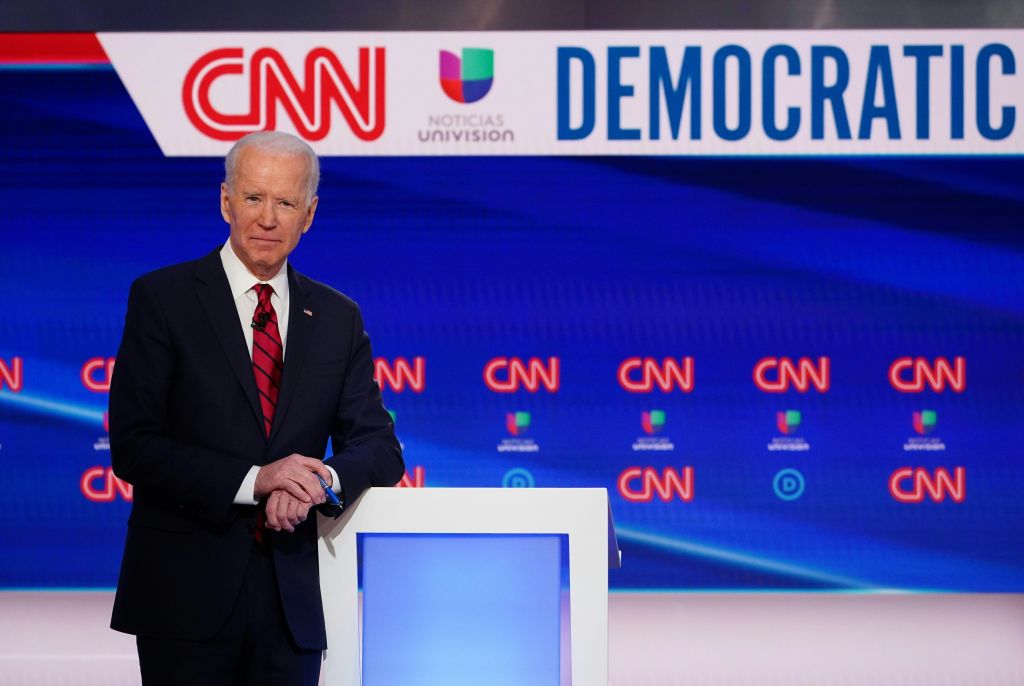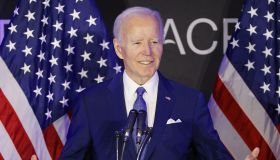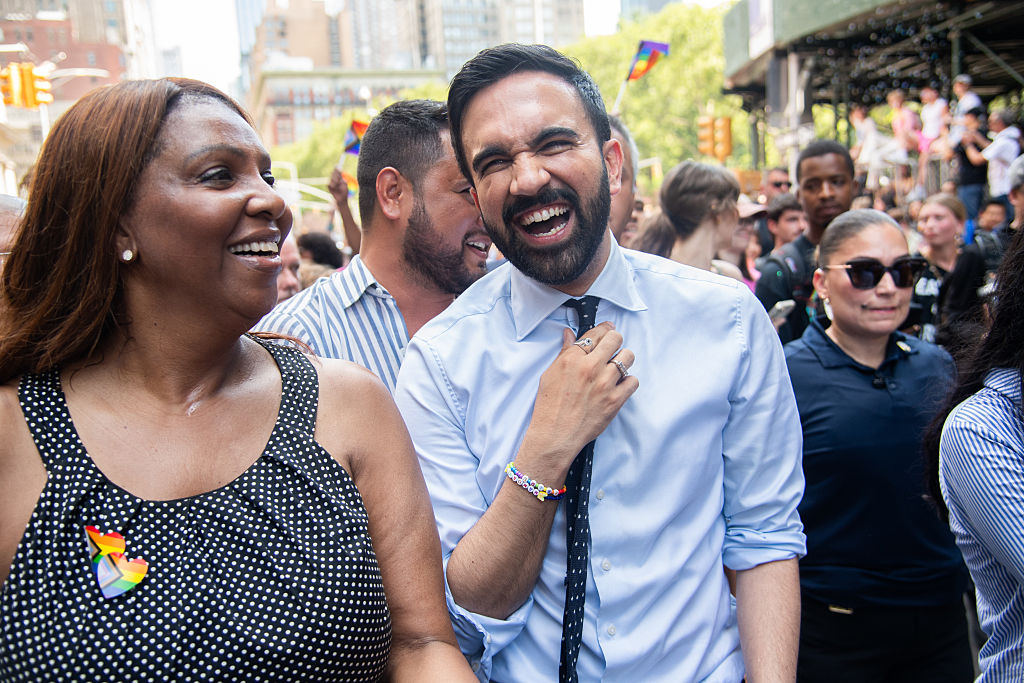Sanders Tops Biden In Donations From Black People Despite Losing
Do Black Voters Really Prefer Biden? African Americans Donated The Most To Bernie

Source: MANDEL NGAN / Getty
A new report could shed light on how money flows through politics and how large donations to candidates don’t necessarily equal support at the polls.
According to a study carried out by Plus Three — a people of color-owned technology and fundraising firm — Black Americans donated nearly $41 million last year to Democratic presidential candidates and Sen. Bernie Sanders topped the list in donations.
The new report was commissioned by the Collective PAC, a group working to boost the number of Black officeholders.
According to NBC News, Plus Three researchers looked at more than 1.94 million donations from Black donors and examined more than 13 million donor records from ActBlue — an online donation platform that, in recent election cycles, collected around 95 percent of all donation made to Democratic candidates. Unlike individual campaigns, in which candidates have to only report donations of $200 or more to the Federal Election Commission, ActBlue records details about those giving as little as a dollar. Plus Three learned through their research that the average amount given to presidential candidates was $21.03.
To zone in on the nearly 2 million donations likely made by Black donors, Plus Three only tallied donations coming from people with the 162,255 most common surnames used by Black people in the United States, according to U.S. census data. Then, the authors of the study slimmed this group down to those who also live in a ZIP code where census data shows 20 percent or more of all residents are Black. This method is similar to how advertisers target customers, campaigns target voters and regulators have attempted to monitor fairness in lending.
When it comes to Black donors, Sanders raised the most money with $10.5 million in donations, which is nearly $4 million more than Sen. Elizabeth Warren who came in second place. Pete Buttigieg collected $6.07 million, while former vice president Joe Biden came in fourth place with $3.65 million. Sen. Kamala Harris of California collected $2.99 million while Sen. Cory Booker amassed $1.24 million.
“Sanders performed better with Latino and African American donors because of the sheer scale of his base of fundraising,” said Juan M. Proaño, Plus Three CEO and co-founder who conducted the study. “Biden will begin to do better now that he is the front-runner and his fundraising numbers should increase accordingly. However, Biden still has a major fundraising problem because he does not have the team or the email list needed to capitalize on this sudden success.”
In general, Sanders has been a beast when it comes to raising money. Back in February, his campaign raised $46.5 million, which was the largest monthly sum any Democratic candidate has raised so far this election cycle.
Despite the funds however, Sanders still can’t seem to win the states need to keep a lead against Biden in the primaries. This past Tuesday was another example of a sweeping loss in Florida, Illinois and Arizona, according to CNN.
Sanders had an especially hard time in southern states like Mississippi, Alabama, North Carolina, South Carolina and Virginia where Biden won by large margins. Many of these states, including Mississippi and South Carolina have a large percentage of Democrats that are Black.
Although Sanders received the largest amount of donations from Black people, according to Plus Three, variables like how he’s spending the money and what class of Black people are donating must be considered.
For example, the median household income for Black people is lower than white people and even Hispanic people, according to the U.S. census bureau. Thus, depending on a Black person’s financial standing, they might not be donating to their candidate of choice, but they are going out to vote.
Some people also won’t donate until candidates dwindle down. “At the presidential level those not immediately in love with a candidate will take a wait-and-see approach, especially in 2019 when there were 20-plus candidates,” explained Marvin King, an associate professor of political science at Mississippi State University, who studies political donations and their impact. “The same happened really in 2008. The polling with Black voters and the donations from Black donors shot up for Obama after Iowa,” King said. “They were like, we will get on your train but show me something first.”
It’s also questionable how Sanders has been using his donations from Black donors. While Biden already has an established name — especially amongst older Black voters who tend to vote at a higher rate than young voters — Sanders has to figure out how to activate a Black electorate who might not be voting but who are interested in Sanders’ values. Many commentators have noted that older Black voters aren’t necessarily opposed to a candidate like Sanders, however, their vote is much more about who can beat Donald Trump. Therefore, activating Black people who might not be going to the polls could be crucial to Sanders’ campaign. Has money been spent to make his messaging and grassroots organizing stronger for these Black people of all ages?
Sanders has already caught some heat for skipping out on events where he could’ve connected more with Black voters, such as the 55th Bloody Sunday anniversary in Selma, Alabama this month. Meanwhile, he’s spent plenty of money on ads, even more than Biden in certain instances. On Super Tuesday, Sanders spent $55 million on T.V., radio and digital advertising, according to CNN, whereas Biden spent $16 million.
Joe Now that we know Bernie is definitely receiving funds from Black voters, the questions as to how he’s using them are important, for the sake of his campaign and for future presidential candidates.
SEE ALSO:
9 Ways The Coronavirus Has Affected Black America That Aren’t Related To Health
Coronavirus Is Freeing Inmates Except Those In An Inhumane Mississippi Prison





















